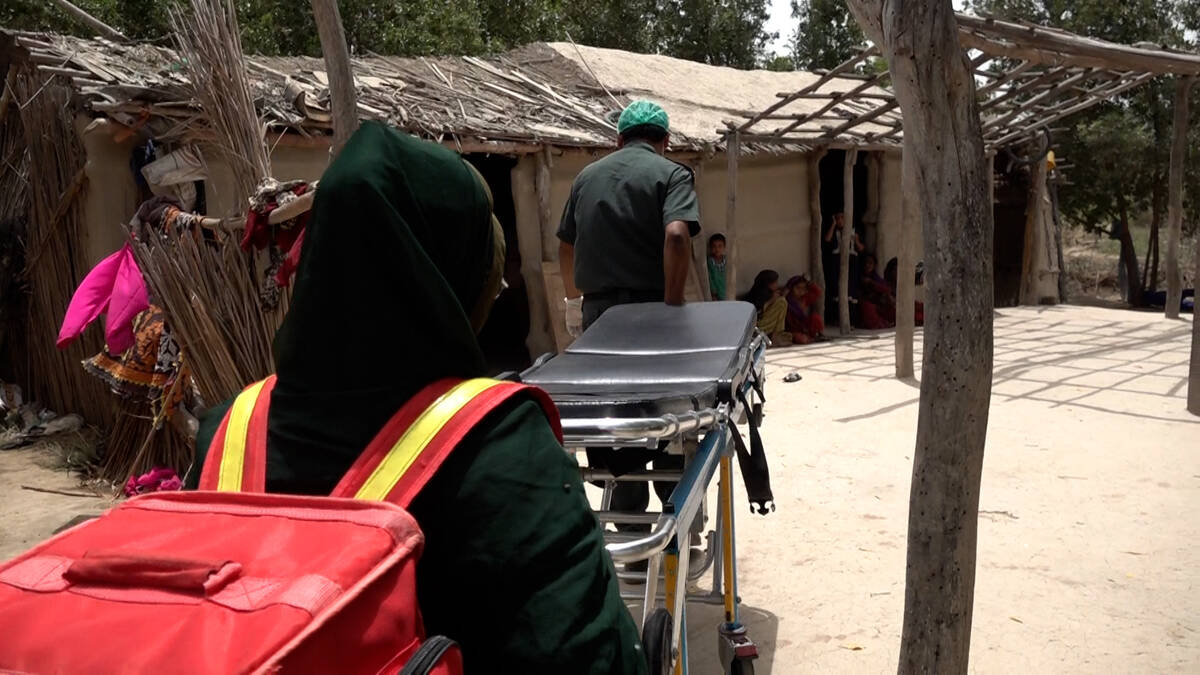ISLAMABAD: Pakistan’s former finance minister Ishaq Dar was named on Monday as the country’s foreign minister while Muhammad Aurangzeb, the CEO of Pakistan’s largest bank, was picked as finance minister in the new cabinet.
Both appointments come at a time when growing economic and security challenges will dominate the nation’s foreign policy.
Dar, 73, a chartered accountant and a seasoned politician, comes from Prime Minister Shehbaz Sharif’s Pakistan Muslim League-Nawaz (PML-N) party, which is leading a minority government as part of a ruling coalition. He is also a close relative of, and close aide to, PML-N chief Nawaz Sharif.
The senator is also a previous four-time finance minister, suggesting a ramped up role for economics in the nation’s diplomacy as the country tries to secure another International Monetary Fund Deal and shore up external financing from foreign capitals.
“Economic diplomacy is the need of the hour for sure,” Dar told Reuters.
However, even his political allies have criticized his handling of the economy in his tenure as finance minister in the last coalition set-up, which took over in April 2022 after the removal of former Prime Minister Imran Khan in a parliament vote of confidence.
Inflation spiked as high as 38 percent and interest rates to 22 percent during Dar’s 16-month stint, mostly due to the IMF’s policy requirements.
Dar has defended his actions, saying he had to take tough measures to avert a sovereign default by securing the IMF program, which Khan had scuttled days before leaving his office, an accusation the former cricket-star denies.
However, under Dar, Pakistan struggled for seven months to unlock the remaining tranches of its last $6.5 billion bailout program, and ultimately it took Shehbaz Sharif’s intervention to secure a new last-ditch deal. During that time, Dar regularly criticized the IMF on public platforms in the middle of negotiations. He is best known for favoring market intervention to prop up the Pakistani rupee — something the IMF has warned against.
In his new job, Dar will have to handle delicate relationships, including with China and Gulf countries that are key sources of financing for cash-strapped Pakistan, as well as with Washington.
He also faces prickly neighbors, including arch-rival India, which will go to the polls this year, and Taliban-led Afghanistan, which Pakistan accuses of harboring militants who are increasing attacks on Pakistani soil. The Taliban deny that claim. Dar will have to navigate these challenges in a minority government that will rely on the support of different parties to pass critical legislation, with alliance partner Pakistan Peoples Party saying it would support the government on an issue-to-issue basis.
In the role, he will also likely have to consider the powerful military, which has maintained a huge influence on the country’s foreign policy, although it denies meddling in politics.
“FINANCE MINISTER”
A national election last month resulted in no party holding a majority, after which a coalition alliance elected Shehbaz Sharif as prime minister for a second time to tackle the country’s economic and political crises.
Sharif has included Muhammad Aurangzeb, chief executive officer of HBL bank, in the cabinet and he will be given the portfolio of finance minister.
“Mr. Muhammad Aurangzeb officially took over the responsibility as Finance Minister of Pakistan after taking oath at the Presidency, today,” the ministry of finance said in a post on X on Monday night.
Aurangzeb was picked over several veterans previously involved in handling the $350 billion economy, including four-time finance minister Ishaq Dar, as the country looks to plot a path out of its economic difficulties.
HBL on Monday informed the Pakistan Stock Exchange of Aurangzeb’s resignation from the bank, in a letter to the bourse.
Aurangzeb was quoted in the statement as saying, “I am excited about the opportunity to serve our country in this new capacity and contribute to the economic growth and development of Pakistan.”
The bank called his stepping down from his position a “remarkable act of national service.”
Pakistan’s current IMF program expires next month, and Sharif has said his government would look to negotiate a new, longer term bailout to keep the country’s economy stable amidst high inflation and external financing requirements.
Aurangzeb does not have a seat in parliament but local laws say he can hold a post of minister for up to six months without one.
Reuters reported that Sharif’s Pakistan Muslim League-Nawaz (PML-N) party planned to give Aurangzeb a Senate seat soon.



















